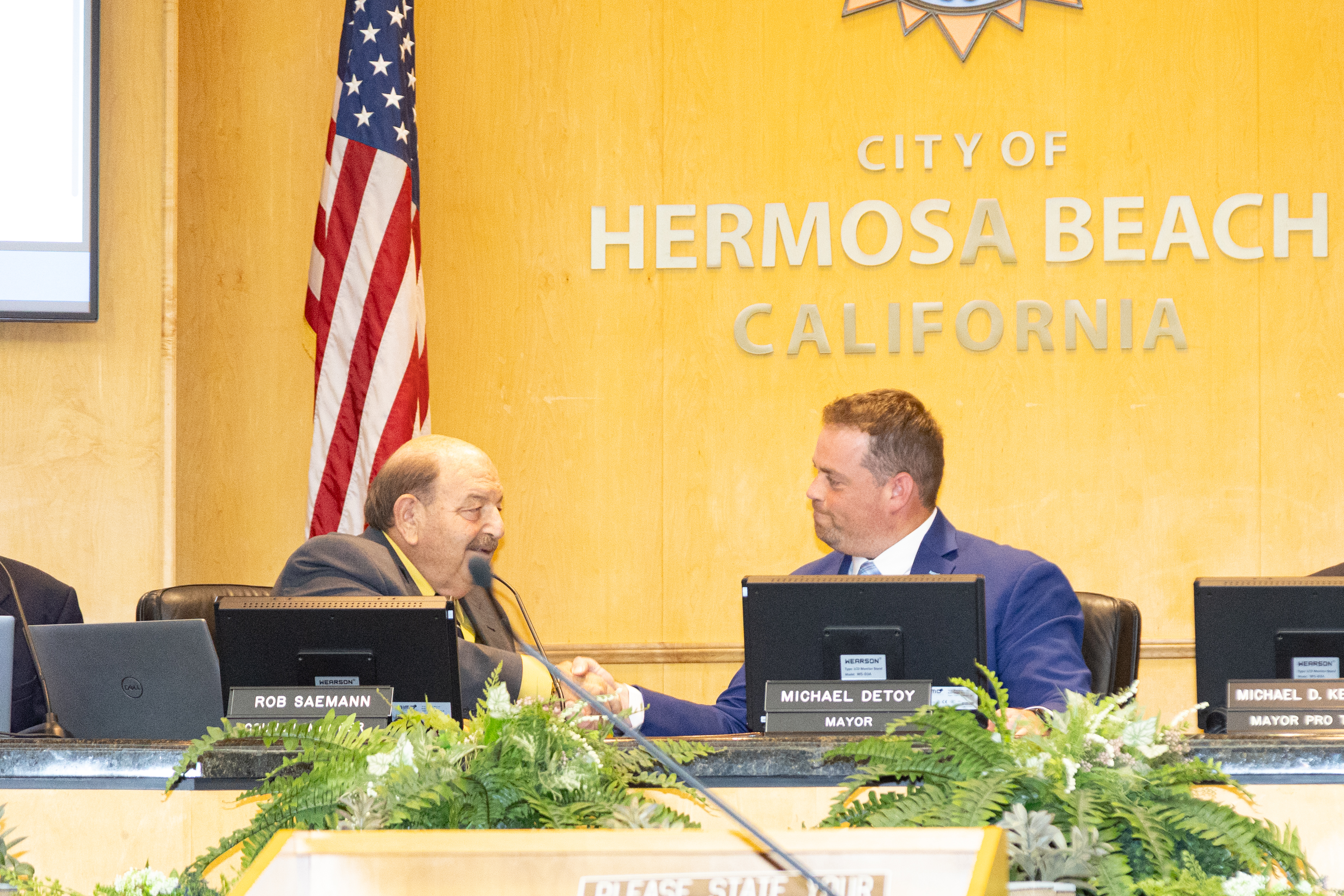In the wake of a Manhattan Beach City Council meeting ran until 2 a.m. two weeks ago, the council had a discussion last night about meeting management.
The item was agendized after council members began questioning whether late-running meetings alienated the public and therefore violated The Brown Act.
“We’ve gone so far off the rails it’s really frustrating,” Council member David Lesser said during the last meeting. “It’s just not fair. It’s not right to them [the community].”
The council decided to make adjustments to its meetings to make them more efficient. Changes include a hard 11 p.m. end time for meetings (with exceptions) and ceremonial items (mayoral and city staff awards) beginning at 6 p.m.—a half hour earlier than the 6:30 p.m. meeting time.
The council will also approve the agenda at the beginning of each meeting and take that time to re-order or possibly postpone items to later meetings. Because council meetings are held twice a month, the council also decided to open up the option to hold extra meetings on off-weeks to allow more time to discuss controversial matters with the public. Mayor Wayne Powell will also allow council members the opportunity to comment on agenda items before opening the floor public comment.
The most controversial change to meetings is now there will only be one public comment time period for consent calendar items. Audience members are able to pull multiple items from the consent calendar to open them for discussion. Before, they were able to comment on each pulled item for up to three minutes. Now, although members of the public can still pull consent calendar items for discussion, they only have one three minute session to discuss all of the items.
Council member Amy Howorth said that consent calendar items are a routine part of council meetings, a portion of the agenda intended to approve contracts and the like. The council agreed that any item that deserves further discussion should be removed from the consent calendar and agendized for a future meeting.
The council discussed issues they have had with the audience commenting on items from the consent calendar. Some individuals take time for each item to repeat comments or criticisms, or to ask questions that would be more efficiently answered if they called City Hall.
“No one wants to say it, but I’ll say it – there’s abuse on the consent items,” Council Member Richard Montgomery said.
Lesser said he was worried about limiting public comment on consent calendar items, calling the decision a “slippery slope.”
“I’m worried for those audience members who pull items in good faith to have a dialogue,” he said.
The council will review the definition of what items should appear on consent calendar, along with reviewing protocol for how items are agendized.
Howorth said that these changes will be on a trial-and-error basis.
“If it doesn’t work two months later, we can go back to our old ways,” she said. ER








